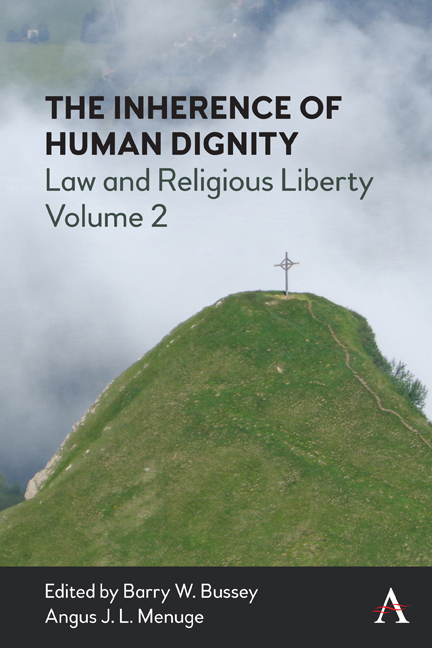Chapter One - ‘Acts Which Have Outraged the Conscience of Humankind’
Published online by Cambridge University Press: 24 February 2022
Summary
When trying to comprehend an elusive concept, it is sometimes advantageous to seek out its opposite. Such is the case with human dignity. It can be difficult to define, but when we see or experience an affront to human dignity, we recognize it immediately. Such a method is especially appropriate when human experience provides such ample material on the opposite of human dignity. Unfortunately, we have no shortage of examples of the violation and degradation of human dignity across time and around the globe.
This chapter explores the interesting career of the legal phrase ‘acts which have outraged the conscience of humankind’. The phrase emerged in nineteenth-century jurisprudence as part of an attempt to understand the boundaries of national sovereignty in international law, and more specifically, when it might be legally acceptable to violate national sovereignty for purposes of humanitarian intervention. The phrase was given prominence in the preambles to the Universal Declaration of Human Rights (UDHR, 1948) and continues to be an important reference today in the work of the International Criminal Court, the R2P doctrine and human rights generally. It is most frequently used as a legal threshold test to determine whether intervention to protect people's human rights is legitimate.
The central assumption of this chapter is that the concept of ‘acts which shock the conscience of humankind’ is a practical opposite to the idea of human dignity. By exploring the origins and use of the shocked conscience, we can gain clarity on the role that human dignity plays in international humanitarian and human rights law today.
As we will see, the oft-repeated appeal to an outraged conscience functions to moderate and, in a metaphorical sense, smooth the rough edges off legal positivist approaches to international humanitarian and human rights law and implicitly introduces some elements of the natural law tradition which are needed to sustain a conversation between legality and justice. Furthermore, this conversation about human dignity is conducted in a fashion that is dialogical in a pluralistic global environment, wherein the international humanitarian legal regime provides a forum in which nation states can negotiate the acts confronting the international community which truly shock the conscience, in conversation with past atrocities, and in this way implicitly affirm a core content of human dignity corresponding to the perceived demands of the present moment.
- Type
- Chapter
- Information
- The Inherence of Human DignityLaw and Religious Liberty, Volume 2, pp. 13 - 26Publisher: Anthem PressPrint publication year: 2021

